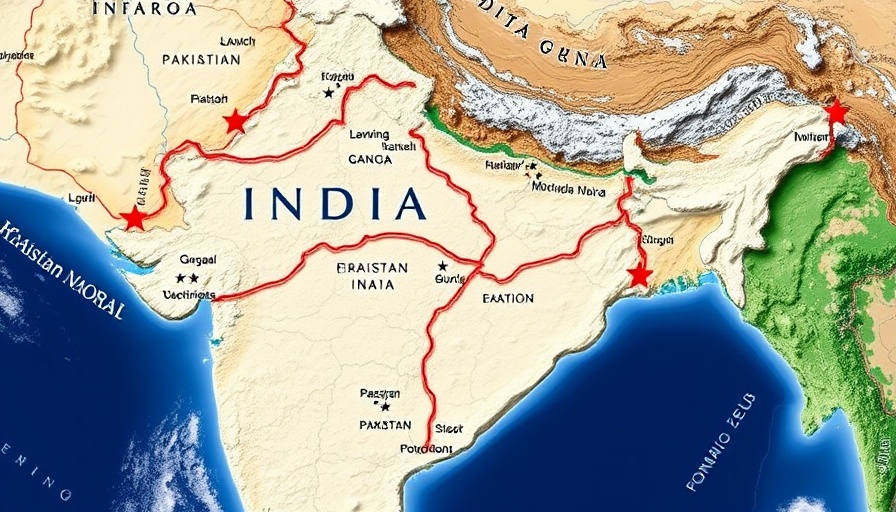
The Rising Tensions: A New Military Episode
In recent weeks, geopolitical tensions have escalated dramatically between India and Pakistan, two nations historically at odds. Following a terrorist attack in India, believed to have connections to Pakistan, India took a decisive military action by launching airstrikes on multiple targets within its neighbor's territory. These strikes signify a bold and unprecedented move in their long-standing conflict, raising concerns about possible repercussions given their nuclear capabilities.
Casualties and Claims of Victory
The immediate aftermath of the airstrikes saw claims of victories from both sides. Reports indicated significant damage to several locations in Pakistan, including those believed to shelter terrorist leaders. Estimates suggest that the strikes resulted in approximately 20 casualties, igniting outrage among the Pakistani populace. Meanwhile, Pakistan alleged the downing of Indian jets, a narrative that has been amplified by local media and eyewitness accounts. This reciprocal assertion of losses illustrates a crucial inflection point where both nations seem poised for further escalation.
Historical Context: A Pattern of Violence
The ongoing clash between these two nuclear-armed nations isn't new. Historically, India and Pakistan have navigated through cycles of violence and ceasefire, often reigniting tensions over border disputes and terrorism. Military confrontations, such as the Kargil War in 1999 and the Pulwama attack in 2019, have set precedents for future engagements, leading observers to question the durability of any ceasefire agreements. The question now is whether these recent developments will follow suit, spiraling into sustained military conflict or whether diplomatic avenues may open up once more.
Potential Off-Ramps: Diplomacy or Escalation?
As both nations reassess their positions, the stark reality emerges: there exists a precarious off-ramp that could prevent further violence. The international community has been vocal in urging restraint and dialogue, emphasizing the potential for diplomatic discussions rather than continued military actions. Analysts believe that Pakistan may seek to assert its strength to regain honor domestically, while India may leverage its military actions to rally national support against perceived threats.
Strategic Implications for Regional Stability
The implications of this conflict extend beyond India and Pakistan, affecting regional stability in South Asia. The entwined relations of India with several allies, including the United States, juxtaposed against Pakistan's historic ties with China, complicate the geopolitical landscape. The potential for external intervention—whether for peacekeeping or arms supply—could further entrench the divides in this ongoing saga, leading to unintended consequences.
Looking Ahead: What Lies in the Future?
As regional watchers analyze the situation, several scenarios emerge. If both nations choose to de-escalate, the possibility exists for renewed diplomatic talks, potentially leading to more stable relations. On the other hand, failure to seek peace and a continued cycle of retaliation could lead to a broader conflict, drawing in allies and destabilizing the region even further. The fate of millions depends on the decisions made by leaders on both sides in the coming days.
The Human Perspective: Voices from the Ground
For those living in the conflict zones, the stakes are incredibly high. Families have been uprooted, and communities are living in fear of further violence. Local opinions reveal a mix of resistance and resignation, where citizens express frustration not just with their governments but also the cycle of violence that forces them to endure the consequences of poor leadership. Hearing personal stories from people affected can shed light on the human side of these statistics, emphasizing the necessity for understanding and dialogue over military might.
In conclusion, the recent military clashes between India and Pakistan pose critical questions about the future. Will both countries seek a path to resolution or continue down a destructive road? The onus lies upon their leaders to choose wisely, lest they plunge the region into further chaos. Watching closely, the world awaits their next moves in what may well define the future of South Asia.
 Add Row
Add Row  Add
Add 




Write A Comment